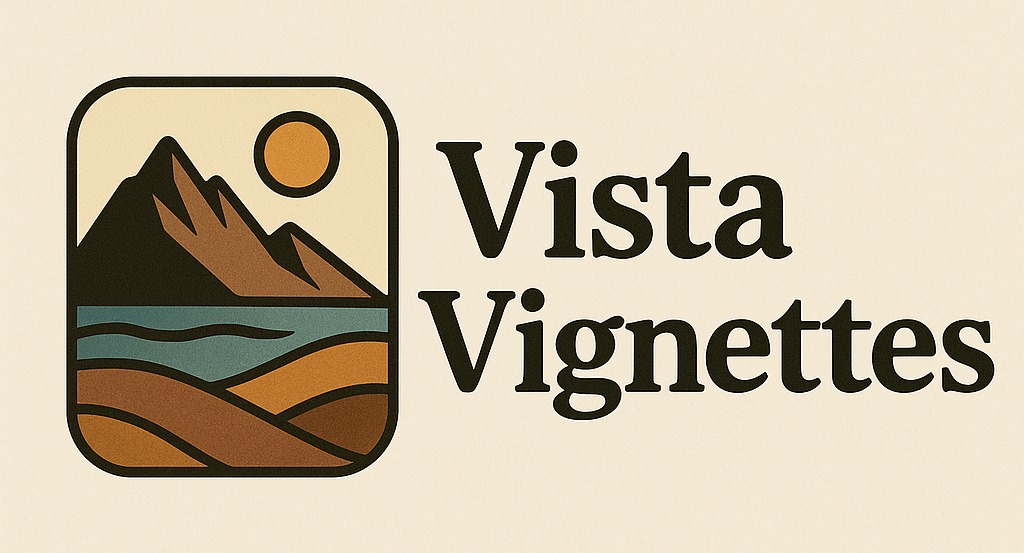Industrial-sized plastic luggage stuffed with cans and bottles that Portlanders redeem for 10 cents every spill onto the gross sales flooring of a number of Plaid Pantry shops within the metropolis’s inside core.
Day and evening, individuals who’ve collected beverage containers from recycling and trash bins trek to the shops, realizing the 50 empties they’re allowed to show in every day will generate sufficient money for pressing expenditures together with their subsequent excessive, says Plaid Pantry CEO Jonathan Polonsky.
As soon as outdoors, they typically use their authorized proceeds to purchase medication, Polonsky says. Fentanyl vapors waft by means of the air. Potential prospects are scared away. Neighbors complain.
“There’s nothing attractive about taking again different folks’s bottles and cans,” Polonsky mentioned. “There are needles. We’ve had (retailer staff) are available in contact with fentanyl after they forgot to placed on their gloves. … It’s a grimy, nasty factor.”
Polonsky speculates that the issue may get higher but additionally an entire lot worse underneath Senate Invoice 992, which handed the Legislature final week and awaits the governor’s signature.

Jonathan Polonsky, CEO of Plaid Pantry.Sean Meagher/The Oregonian
For Portland’s inside core, required grocery retailer redemptions would finish at 8 p.m. and comfort retailer redemptions at 6 p.m. The realm’s comfort shops, outlined as these smaller than 5,000 sq. toes, would solely have to simply accept 24 containers.
Polonsky is passionate about these modifications.
However the revisions additionally would permit all Portland grocery shops — bored with the complications of accepting bottle returns, together with the clientele they bring about in — to cease hand-counting empties. As an alternative, the shops could be allowed to simply accept solely specifically marked “inexperienced luggage” that will be trucked away for counting, with proceeds later credited to every particular person’s account. That system is unattractive to many drug customers who need instantaneous money.
In one other main revision, the invoice would permit some grocery shops in Portland’s inside core to cease bottle returns altogether. They’d need to pay right into a system that funds another redemption web site close by.
“By doing that, they’ll inform each single buyer that walks by means of the door, ‘We don’t take bottles and cans. Interval,’” Polonsky mentioned.
Polonsky is frank: He needs what grocery shops have. He worries the invoice will funnel drug customers away from grocery shops and to different redemption websites, together with his.
At certainly one of Plaid Pantry’s busiest redemption places, at Southwest First Avenue and Lincoln Road close to the Portland State College campus, the one worker on responsibility typically spends extra time counting bottles than ringing up snacks and different sundries. On a current weekday evening, a small line of “canners” — individuals who accumulate cans each day — stood in wait.

Russell Pederson, 44, stands outdoors the Plaid Pantry at Southwest First Avenue and Lincoln Road after redeeming cans. He mentioned he longs for the times he may redeem an infinite quantity wherever drinks have been bought, like when he was a child.Aimee Inexperienced/The Oregonian
Russell Pederson, who’s 44 and homeless, was amongst them. He mentioned many comfort shops within the metropolis’s core refuse to redeem cans and bottles, so he stops by 4 Plaid Pantries to redeem a complete of $20 a day.
“I’m grateful for Plaid Pantry,” Pederson mentioned.
Pederson mentioned he makes use of the money for all of his primary wants, together with medication to ameliorate the ache he says he feels from a violent assault years in the past that left him with a fractured cranium, eye socket, jaw and different accidents. He mentioned $5 of the cash he makes goes for medication that may final him about two days.
For individuals who see his way of life as a menace, he asks: “Why make it your enterprise?”
Below Senate Invoice 992, Pederson mentioned he should go to double the variety of Plaid Pantry shops — eight — to make roughly $20. The Individuals’s Depot, a Southeast Portland redemption web site that the invoice’s backers hope to divert can collectors to, isn’t a lot of an possibility, he mentioned. That’s as a result of it’s solely open about two hours a day and solely on weekdays.
Polonsky mentioned Pederson’s expertise of ping-ponging between Plaid Pantry shops is widespread as a result of his comfort shops at all times settle for cans and bottles. Many others don’t, he mentioned, though they promote drinks in redeemable containers.
Although the Oregon Beverage Recycling Cooperative, the personal firm that picks up beverage containers from shops, declined to share store-specific data as a result of it’s “proprietary,” The Oregonian/OregonLive discovered that the follow of comfort shops refusing to simply accept redemptions in downtown is pervasive. Seven out of 10 that the information group contacted mentioned they received’t take again any. Two mentioned they might settle for as much as 50, which is what the legislation requires of their downtown zone. One selected the arbitrary variety of 20.
Polonsky has calculated that out of the almost 40 comfort shops in and close to downtown, 4 of his Plaid Pantry shops took again 63% of the cans and bottles redeemed in that zone final 12 months.
Including insult to damage: “There’s no enforcement,” Polonsky mentioned.
The Oregon Liquor and Hashish Fee, which enforces the Bottle Invoice, mentioned it obtained 680 complaints about redemption places statewide and performed 67 compliance checks on these places. However in response to a public information request this previous week, the group mentioned it wanted extra time to say what number of, if any, have been comfort shops within the downtown space.

The Plaid Pantry in downtown Portland, alongside Southwest Jefferson Road.Aimee Inexperienced/The Oregonian
All of the whereas, Polonsky mentioned he’s been hounded by some residents.
“There’s individuals who stay in condos round my shops in downtown and suppose I’m the dangerous man,” Polonsky mentioned. “I can provide you 100 letters that say ‘Why do you retain taking again bottles and cans? All these individuals are loitering in entrance of your shops.’ And my response is, ‘It’s the legislation.’”
Sen. Janeen Sollman, a Hillsboro Democrat and chief backer of Senate Invoice 992, mentioned the invoice already has made concessions like shortening hours and decreasing can-redemption numbers to deal with the considerations of Plaid Pantry and different comfort shops.
However Sollman mentioned she wasn’t prepared to utterly exempt comfort shops from their obligations as a result of many Oregonians need easy-to-access redemption websites. Comfort shops typically match that invoice. She mentioned she noticed that play out on a go to to Plaid Pantry in Hillsboro, the place “hard-working folks working lengthy hours” turned to the shop to redeem their empties.
“In any other case, in the event that they didn’t have a automotive, they have been getting on the bus,” Sollman mentioned.
Supporters of Oregon’s 54-year-old Bottle Invoice, together with Sollman, say it has made the state a extra environmentally pleasant place by diverting greater than 2 billion containers from the waste stream every year. Some say the reply to drug issues which have clustered round redemption websites lies in additional policing and higher companies for the drug addicted — no more revisions to the state’s cash-for-cans legislation.

Ten folks congregate outdoors the Plaid Pantry at Southwest eleventh Avenue and Jefferson Road in downtown Portland on a night in Could 2025. A “Fentanyl is sneaky” billboard subsequent to the car parking zone warns the drug will be infused into counterfeit M30 capsules.Aimee Inexperienced/The Oregonian
Polonsky mentioned the issue of cans fueling drug addictions solely impacts about 10 to fifteen of Plaid Pantry’s roughly 100 Oregon shops — and never the Plaid Pantry retailer that Sollman visited.
Early final 12 months, the issue received so dangerous within the coronary heart of downtown Portland that Gov. Tina Kotek instituted a two-month freeze on redemptions on the Plaid Pantry and Safeway on Southwest Jefferson Road. However after the moratorium ended, the issues at that Plaid Pantry retailer crept again, Polonsky mentioned.
He mentioned he’s responded to the issue by bucking the chain’s round the clock enterprise mannequin by closing the Jefferson Road retailer at evening. Even so, 10 folks loitered on the sidewalk subsequent to the shop on a current weeknight. They’d arrange a tent and left bicycles, a trailer and baggage subsequent to it.
That’s dangerous for enterprise, Polonsky mentioned. For many years, that retailer ranked within the high 10 Plaid Pantry places for pulling in essentially the most income, Polonsky mentioned.
“Now, it barely makes cash,” Polonsky mentioned. “Now, it’s on the backside.”
“When you could have 8 or 10 individuals who don’t seem like essentially the most fascinating folks on the earth milling round in entrance of the shop, you, my spouse, my daughter aren’t going to tug as much as that retailer and purchase something,” he continued. “You’re going to drive proper by.”
— Aimee Inexperienced covers the Oregon Legislature. Attain her at 503-294-5119, agreen@oregonian.com or on Bluesky.


